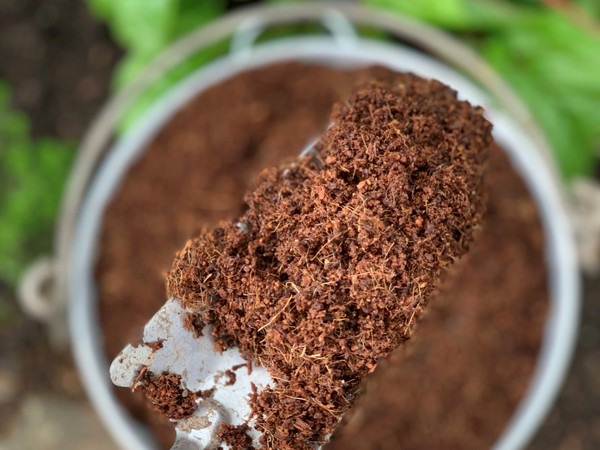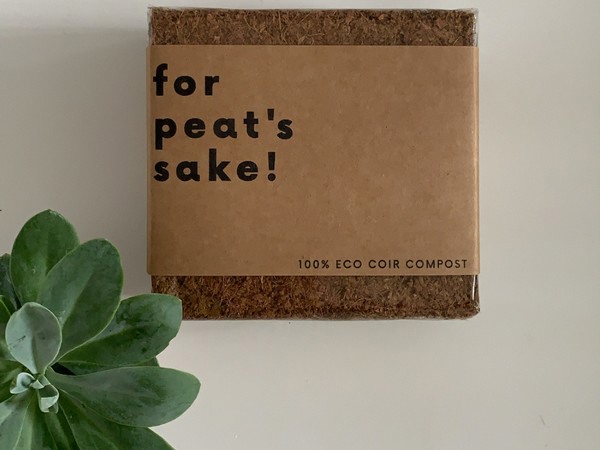This year is in danger of being remembered for all the wrong reasons, and few have been affected more than our younger generation. George Davies is one such example. At the age of 20, his final year at the University of Cardiff was suddenly cut short and he found himself heading back to the peaceful quiet of his parents’ West Gloucestershire home.
Online exams became the norm; no graduation, planned trip to Vietnam nor family holiday; a much quieter 21st birthday celebration than ever imagined, and plans to move to Edinburgh to study an MSc in Sustainable Design suddenly became up in the air.

George Davies
However, instead of being concerned with what he couldn’t do, George set about what he could do. Studying for a degree in BSc Environmental Geography has meant George is all too aware of pressures on the global environment caused by modern living.
Following discussions with his parents who are keen gardeners, hearing that peat moss is still being extracted to produce compost mixes struck a chord.
Bogs, moorlands and peatlands have been destroyed to excavate peat for human use. However, it is well-documented that these peat-based ecosystems act as beneficial carbon stores, natural water management systems, and support a diverse range of wildlife. Excavation releases huge amounts of greenhouse gases – according to IUCN, damaged peatlands contribute to around 10% of greenhouse gas emissions from the land use sector, contributing to global warming.
Knowing he could make a difference, George, with the help of friends and family, set about founding his own peat-free alternative – ‘For Peat’s Sake’. For Peat’s Sake is a 100% peat-free growing medium manufactured using a by-product of the Sri Lankan coconut industry. This sector is paramount to the Sri Lankan economy and having ensured the environmental and ethical credentials in a suitable supplier, George was able to create an innovative solution.

Hydrated coir compost
“Coir is a much better medium for plants to grow in than peat,” said George. “The particles are graded to ensure optimum air to water ratio, and they do not readily breakdown, which means the plant’s rootzone has a much better environment within which to thrive. A plant with a healthy root system is far less likely to be affected by pests and diseases."
‘For Peat’s Sake’ is supplied in a light, dehydrated pack - perfect for gardeners to pick up and carry home. By adding water, the coir rehydrates to form a ready-to-use material. As no fertilisers are used in production, gardeners are encouraged to use their usual liquid fertilisers. All packaging is compostable or biodegradable.

The block, wrapped sustainably
George has created the product, brand, a website, and an Instagram channel. Sales have been brisk, both direct to users and to wholesalers, all achieved within a matter of weeks. “With news that some major DIY sheds are failing to meet their peat-free targets this week, we know the solution is already out there with For Peat’s Sake”, said George.
“And with more people than ever turning to gardening this year, there is no better time than now to make sure that we educate gardeners, old and new, in the benefits of choosing to grow peat free.”
For more information:
For Peat's Sake
george@forpeatssake.co.uk
www.forpeatssake.co.uk
Instagram
